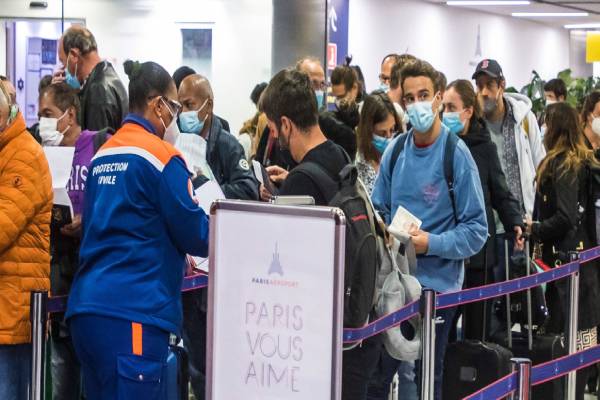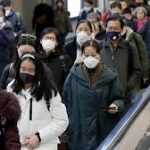The ban on British tourists will be lifted on Friday, according to France’s tourism minister, and all UK visitors will no longer be required to show proof of a “compelling reason” for their trip.
People arriving from the United Kingdom will no longer need to self-isolate when they arrive in France, according to Jean-Baptiste Lemoyne, but proof of a negative Covid-19 test taken no more than 24 hours before departure will still be required.
“People will once again be able to travel for leisure between France and the UK, and to go skiing,” he said.
Travel operators, such as ferry companies and the Eurostar train service, will welcome the decision to allow non-essential travel once more, as will British skiers, thousands of whom have booked holidays in Alpine ski resorts.
In an effort to slow the spread of the Omicron Covid variant, France tightened travel restrictions to and from the UK on December 18, requiring both vaccinated and unvaccinated people to show a “compelling reason” for travel, such as a family or health emergency.
The rule, which effectively restricted entry from the UK to French and EU nationals, as well as British citizens living in France, was later relaxed to allow people in “for the pursuit of an economic activity requiring an on-site presence that cannot be postponed.”
All arrivals from the United Kingdom were also required to present a negative PCR or antigen test taken within the previous 24 hours and to be quarantined in France for seven days, which could be reduced to 48 hours if a new negative test could be produced.
The decision made on Thursday should also put an end to a contentious rule that prevents British citizens living in other EU countries from returning home via France. After UK citizens living in Belgium and Germany were denied entry to France, the transit ban was temporarily lifted on December 30.
In recent weeks, daily coronavirus infections in France have set new highs, with the country reporting a new high of nearly 370,000 infections on Tuesday and a seven-day average high of more than 283,000 infections, with Omicron accounting for 87 percent of all cases nationwide.
The strict travel measures were also imposed during what analysts see as a post-Brexit breakdown of trust between the British and French governments over a host of issues from migrants to fishing.













